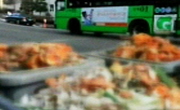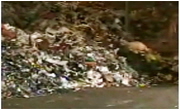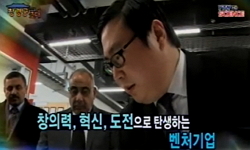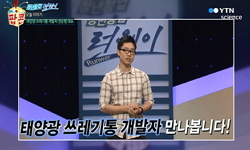This study examines how extensive trash is in Joyce’s works, how close the relationship between his literature and trash is, and how significant this is in his aesthetics. Probably, Mr. Duffy in “A Painful Case” lives the farthest away from the ...
http://chineseinput.net/에서 pinyin(병음)방식으로 중국어를 변환할 수 있습니다.
변환된 중국어를 복사하여 사용하시면 됩니다.
- 中文 을 입력하시려면 zhongwen을 입력하시고 space를누르시면됩니다.
- 北京 을 입력하시려면 beijing을 입력하시고 space를 누르시면 됩니다.
https://www.riss.kr/link?id=A105454202
-
저자
민태운 (전남대학교)
- 발행기관
- 학술지명
- 권호사항
-
발행연도
2018
-
작성언어
Korean
-
주제어
Joyce ; trash ; intertextuality ; stream of consciousness ; Dubliners ; A Portrait of the Artist as a Young Man ; Ulysses ; Finnegans Wake ; 조이스 ; 쓰레기 ; 상호텍스트성 ; 의식의 흐름 ; 더블린 사람들 ; 젊은 예술가의 초상 ; 율리시스 ; 피네간즈 웨이크
-
등재정보
KCI등재
-
자료형태
학술저널
- 발행기관 URL
-
수록면
67-86(20쪽)
-
KCI 피인용횟수
0
- 제공처
-
0
상세조회 -
0
다운로드
부가정보
다국어 초록 (Multilingual Abstract)
Stephen confronts the world of trash while walking along the beach at Sandymount strand in Ulysses. The beach is a place of deposition, heavy with waste. Stephen compares sands with language; the objects scattered there are the signs to be read. Joyce’s art will be about these objects accumulated from the past. It is worth noting that the distinction between “letter” and “litter” collapses here. Joyce writes that his head is full of rubbish, and this connection between waste and mind is illustrated in Finnegans Wake. The mind of Shem, possible avatar of Joyce, is described as the seashore full of flotsam and jetsam. It is interesting to see that the landscape of the artist’s mind is similar to the littered shoreline as mentioned above. Further, Shem’s literary output is associated with the excrement of his body. The relationship between these two is emphasized when Bloom defecates while reading a story in the jake. Here Bloom’s dung is confused or almost identified with the literary work.
Joyce can be compared to the writer of the letter in Finnegans Wake who had “to see life foully,” to present life fully no matter how foul it is. He writes in his letter, “the odour of ashpits and old weeds and offal [hang] around” his stories, and this shows his desire to tell the truth as he saw and smelled it.
This study examines how extensive trash is in Joyce’s works, how close the relationship between his literature and trash is, and how significant this is in his aesthetics. Probably, Mr. Duffy in “A Painful Case” lives the farthest away from the world of trash. The hidden overripe apple in his desk symbolizes his abhorrence of trash. His orderly and austerely furnished room reflects his monkish habits. On the other hand, rejecting the priesthood, Stephen in A Portrait of the Artist as a Young Man accepts his vocation as an artist. The bird-girl wading the sea serves his epiphany and the seaweed attached to her leg will appears as trash in Ulysses, as if to suggest that his art would be closely connected with it.
Stephen confronts the world of trash while walking along the beach at Sandymount strand in Ulysses. The beach is a place of deposition, heavy with waste. Stephen compares sands with language; the objects scattered there are the signs to be read. Joyce’s art will be about these objects accumulated from the past. It is worth noting that the distinction between “letter” and “litter” collapses here. Joyce writes that his head is full of rubbish, and this connection between waste and mind is illustrated in Finnegans Wake. The mind of Shem, possible avatar of Joyce, is described as the seashore full of flotsam and jetsam. It is interesting to see that the landscape of the artist’s mind is similar to the littered shoreline as mentioned above. Further, Shem’s literary output is associated with the excrement of his body. The relationship between these two is emphasized when Bloom defecates while reading a story in the jake. Here Bloom’s dung is confused or almost identified with the literary work.
Joyce can be compared to the writer of the letter in Finnegans Wake who had “to see life foully,” to present life fully no matter how foul it is. He writes in his letter, “the odour of ashpits and old weeds and offal [hang] around” his stories, and this shows his desire to tell the truth as he saw and smelled it.
참고문헌 (Reference)
1 Henke, Suzette, "Women in Joyce" The Harvester P 82-107, 1982
2 Viney, William, "Waste: A Philosophy of Things" Bloomsbury 2014
3 Devlin, Kimberley J., "Wandering and Return in Finnegans Wake: An Integrative Approach to Joyce’s Fictions" Princeton UP 1991
4 Joyce, James, "Ulysses: The Corrected Text" Random House 1986
5 Gifford, Don, "Ulysses Annotated: Notes for James Joyce’s Ulysses" U of California P 1988
6 Lewis, Wyndham, "Time and Western Man" Black Sparrow Press 1993
7 Bénéjam, Valérie, "The Reprocessing of Trash in Ulysses: Recycling and (Post)creation" 5 (5): 130-140, 2004
8 Horan, Julie L., "The Porcelain God" Carol Publishing Group 1996
9 Epstein, Edmund L., "The Ordeal of Stephen Dedalus: The Conflict of the Generations in James Joyce’s A Portrait of the Artist as a Young Man" Southern Illinois UP 1971
10 Lurz, John, "The Death of the Book: Modernist Novels and the Time of Reading" Fordham UP 2016
1 Henke, Suzette, "Women in Joyce" The Harvester P 82-107, 1982
2 Viney, William, "Waste: A Philosophy of Things" Bloomsbury 2014
3 Devlin, Kimberley J., "Wandering and Return in Finnegans Wake: An Integrative Approach to Joyce’s Fictions" Princeton UP 1991
4 Joyce, James, "Ulysses: The Corrected Text" Random House 1986
5 Gifford, Don, "Ulysses Annotated: Notes for James Joyce’s Ulysses" U of California P 1988
6 Lewis, Wyndham, "Time and Western Man" Black Sparrow Press 1993
7 Bénéjam, Valérie, "The Reprocessing of Trash in Ulysses: Recycling and (Post)creation" 5 (5): 130-140, 2004
8 Horan, Julie L., "The Porcelain God" Carol Publishing Group 1996
9 Epstein, Edmund L., "The Ordeal of Stephen Dedalus: The Conflict of the Generations in James Joyce’s A Portrait of the Artist as a Young Man" Southern Illinois UP 1971
10 Lurz, John, "The Death of the Book: Modernist Novels and the Time of Reading" Fordham UP 2016
11 Műller, Timo, "Redefining Modernism and Postmodernism" Cambridge Scholars Publishing 166-173, 2010
12 Levine, Jennifer Schiffer, "Originality and Repetition in Finnegans Wake and Ulysses" 94 (94): 106-120, 1979
13 Beplate, Justin, "Memory Ireland: James Joyce and Cultural Memory, vol. 4" Syracuse UP 157-171, 2014
14 Heumann, Michael, "Masculinities in Joyce: Postcolonial Constructions" Rodopi 195-218, 2001
15 Fordham, Finn, "Lots of Fun at Finnegans Wake" Oxford UP 2007
16 Joyce, James, "Letters of James Joyce, vol. I Vols. II and III" Viking Press 1966
17 Raleigh, John Henry, "Joyce’s Ulysses: The Larger Perspective" U of Delaware P 98-122, 1987
18 Cheng, Vincent, "Joyce, Race, and Empire" Cambridge UP 1995
19 Shechner, Mark, "Joyce in Nighttown: A Psychoanalytic Inquiry into Ulysses" U of California P 1974
20 Platt, Len, "Joyce and the Anglo-Irish: A Study of Joyce and the Literary Revival" Rodopi 1998
21 Deming, Robert H., "James Joyce: 1928-1941, vol. 2" Routlege 1970
22 Brockman, William S., "James Joyce in Context" Cambridge UP 27-38, 2009
23 Rabaté, Jean-Michel, "James Joyce and the Politics of Egoism" Cambridge UP 2001
24 Boldrini, Lucia, "James Joyce and the Difference of Language" Cambridge UP 180-194, 2003
25 Ellmann, Richard, "James Joyce" Oxford UP 1982
26 Connor, Steven, "James Joyce" Northcote House 1996
27 Gibson, Andrew, "James Joyce" Reaktion Books 2006
28 Evans, David H., "Introduction. Understanding James, Understanding Modernism" Bloomsbury Publishing 1-16, 2017
29 Joyce, James, "Finnegans Wake" The Viking Press 1939
30 Solomon, Margaret, "Eternal Geomater: The Sexual Universe of Finnegans Wake" Feffer and Simons 1969
31 Yaeger, Patricia, "Editor’s Column: The Death of Nature and the Apotheosis of Trash; Or, Rubbish Ecology" 123 (123): 321-339, 2008
32 Joyce, James, "Dubliners" Viking Press 1969
33 Freedman, Ariela, "Did it Flow?: Bridging Aesthetics and History in Joyce’s Ulysses" 13 (13): 853-868, 2006
34 McHugh, Roland, "Annotations to Finnegans Wake" The Johns Hopkins UP 1980
35 Tindall, William York, "A Reader’s Guide to James Joyce" Syracuse UP 1959
36 Joyce, James, "A Portrait of the Artist as a Young Man" Viking Press 1968
동일학술지(권/호) 다른 논문
-
트리스탄과 이졸데에 대한 네 사도의 변주: <피네건의 경야> 2권 4장 읽기
- 한국제임스조이스학회
- 전은경
- 2018
- KCI등재
-
- 한국제임스조이스학회
- 임경규
- 2018
- KCI등재
-
『율리시스』에 나타난 문화적 기억장치로써 음악의 역할: 「텔레마코스」 , 「사이렌」 , 「키클롭스」 를 중심으로
- 한국제임스조이스학회
- 이영규
- 2018
- KCI등재
-
「진흙」과 ‘상처 입은 치유자’ 마리아: 조이스의 실존주의적 인간이해
- 한국제임스조이스학회
- 이인기
- 2018
- KCI등재
분석정보
인용정보 인용지수 설명보기
학술지 이력
| 연월일 | 이력구분 | 이력상세 | 등재구분 |
|---|---|---|---|
| 2026 | 평가예정 | 재인증평가 신청대상 (재인증) | |
| 2020-01-01 | 평가 | 등재학술지 유지 (재인증) |  |
| 2017-01-01 | 평가 | 등재학술지 유지 (계속평가) |  |
| 2013-01-01 | 평가 | 등재학술지 유지 (등재유지) |  |
| 2010-01-01 | 평가 | 등재학술지 유지 (등재유지) |  |
| 2008-01-01 | 평가 | 등재학술지 유지 (등재유지) |  |
| 2005-01-18 | 학술지등록 | 한글명 : 제임스조이스저널외국어명 : James Joyce Journal |  |
| 2005-01-01 | 평가 | 등재학술지 선정 (등재후보2차) |  |
| 2004-01-01 | 평가 | 등재후보 1차 PASS (등재후보1차) |  |
| 2003-01-01 | 평가 | 등재후보학술지 선정 (신규평가) |  |
학술지 인용정보
| 기준연도 | WOS-KCI 통합IF(2년) | KCIF(2년) | KCIF(3년) |
|---|---|---|---|
| 2016 | 0.06 | 0.06 | 0.08 |
| KCIF(4년) | KCIF(5년) | 중심성지수(3년) | 즉시성지수 |
| 0.09 | 0.09 | 0.386 | 0 |




 KCI
KCI KISS
KISS






